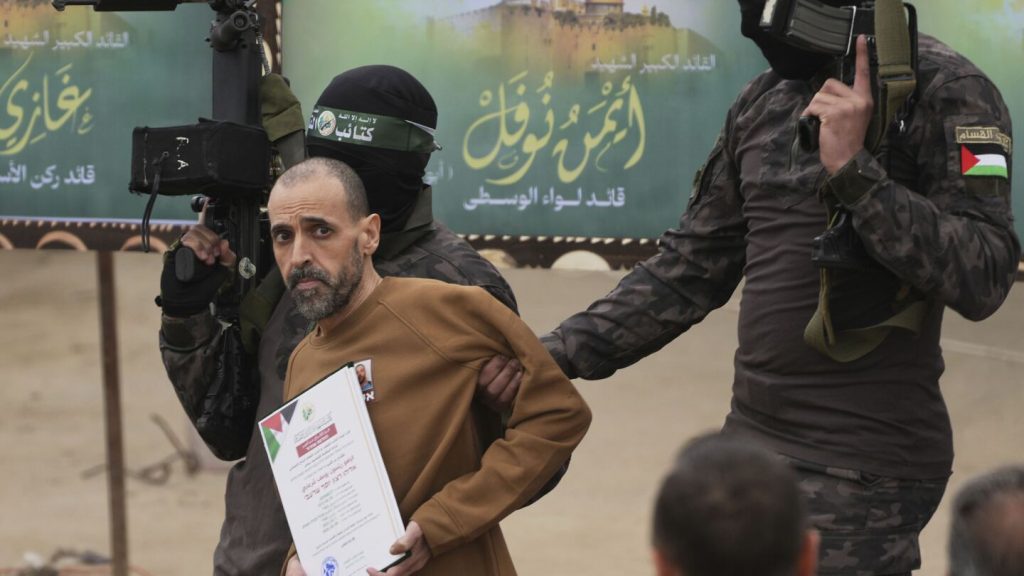Freed Israeli Hostage Eli Sharabi Speaks at U.N. Security Council
UNITED NATIONS (AP) — Eli Sharabi, an Israeli hostage freed after enduring 491 days of brutal captivity by Hamas, shared his frustration during a U.N. Security Council session on Thursday. He detailed the suffering he experienced, including being beaten, chained, and starved, while living in constant fear of death.
Questions for the International Community
Sharabi raised poignant questions about the international response, asking, “Where was the United Nations? Where was the Red Cross? Where was the world?” He urged the Security Council, the U.N.’s most influential body, to demonstrate its commitment to humanity by ensuring the return of the 59 remaining hostages still in Gaza, many of whom are believed to be dead.
Concerns Over Hostages’ Fate
The situation for the remaining hostages has become increasingly precarious following Israel’s recent resumption of hostilities. This comes after a six-week truce that allowed for some hostages to be returned in exchange for Palestinian prisoners. Sharabi pointed out that, while discussions focused on providing humanitarian aid to Gaza, Hamas militants were seen consuming aid meant for those in need, while the hostages were given minimal rations — just a piece of pita and a sip of tea daily, with infrequent dry dates.
Personal Tragedy and Call for Action
Upon his release on February 8, Sharabi weighed only 44 kilos (approximately 97 pounds) — lighter than his youngest daughter, who, along with his wife and older daughter, was killed during Hamas’s surprise attack in southern Israel on October 7, 2023. He was one of 251 individuals taken hostage during that incident.
International Reactions
The U.S. previously vetoed a U.N. Security Council resolution for an immediate ceasefire in Gaza because it was not tied to the release of hostages. In contrast, the U.N. General Assembly passed a nonbinding resolution in December calling for a ceasefire and the release of the hostages. Following a ceasefire that took effect in January, violence escalated once again with airstrikes on Gaza, resulting in over 400 Palestinian deaths.
Global Calls for Responsibility
During the session, British deputy ambassador James Kariuki described Sharabi’s experience as “beyond the imagination,” asserting that Hamas should be held accountable for its actions. Simultaneously, he condemned statements from Israeli Defense Minister Israel Katz regarding the potential complete destruction of Gaza and emphasized the need for aid to the region. French U.N. ambassador Jérôme Bonnafont echoed similar sentiments, extending condolences to Sharabi while condemning the renewed bombings by Israel.
Final Plea for Hostages
In his testimony, Sharabi made it clear that he was speaking not only for himself but also for other hostages, including a fellow captive, Alon Ohel, and his deceased brother Yossi, whose body remains in Gaza. He implored the council with a powerful message: “Bring them all home. Now!”



